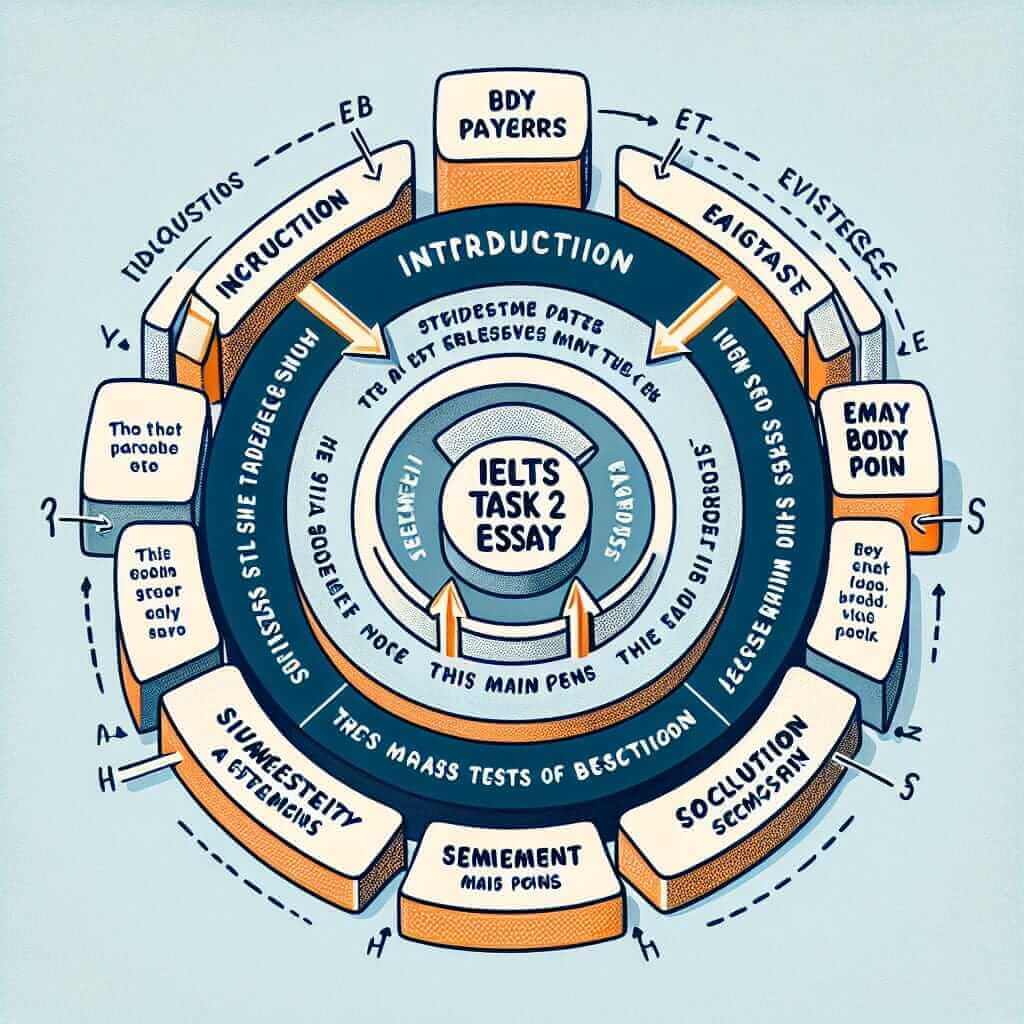The IELTS (International English Language Testing System) writing test is often perceived as challenging, particularly Task 2, which requires composing a formal essay. This guide delves into the intricacies of crafting a high-scoring IELTS Task 2 essay, offering insights honed from over 20 years of experience teaching English as a foreign language.
Understanding IELTS Task 2
This section of the writing test assesses your ability to present and justify your opinions, analyze arguments, and use a wide range of vocabulary and grammatical structures accurately. You’ll be given a topic and asked to write an essay of at least 250 words within a 40-minute time limit.
Essay Structure: Your Roadmap to Success
A well-structured essay is crucial for achieving a good score. Here’s a breakdown of a common and effective structure:
Introduction
- Hook: Start with a sentence or two that grabs the reader’s attention and introduces the topic.
- Background information: Briefly provide context for the issue discussed in the question.
- Thesis statement: Clearly state your position or your interpretation of the question.
Body Paragraphs (2-3 paragraphs)
Each body paragraph should focus on developing one main idea that supports your thesis statement.
- Topic sentence: Begin each paragraph with a clear sentence that introduces the main idea.
- Explanation: Provide supporting details and examples to explain your point.
- Evidence: Use relevant examples from your knowledge, experience, or current affairs to back up your claims.
- Link: Ensure a smooth transition to the next paragraph.
Conclusion
- Restate your thesis: Summarize your main points briefly.
- Final thought: Offer a concluding remark, prediction, or recommendation based on the essay’s discussion.
Key Tips for Writing a Strong Essay
1. Analyze the Question Carefully
Before you start writing, dissect the question prompt. Identify keywords, understand the type of essay required (e.g., argumentative, problem-solution, advantages/disadvantages), and determine your stance.
2. Plan Your Essay
Invest 5-10 minutes in brainstorming ideas and creating a simple outline. This will help you organize your thoughts and ensure a coherent flow in your writing.
3. Use a Variety of Sentence Structures
Demonstrate your grammatical range by using complex sentences along with simple and compound sentences. Don’t be afraid to experiment with different grammatical structures.
4. Employ Rich Vocabulary
Showcase your lexical resource by using a wide range of vocabulary related to the topic. However, avoid using overly complex words if you’re unsure of their meaning or usage.
5. Provide Clear Examples
Support your arguments with relevant and specific examples. Examples make your writing more persuasive and demonstrate your understanding of the topic.
6. Proofread Carefully
Allocate a few minutes at the end to proofread your essay for any grammatical errors, spelling mistakes, or awkward phrasing. This is crucial for ensuring clarity and accuracy.

Example: Analyzing an IELTS Task 2 Question
Question:
“Some people believe that technology has made our lives easier and more convenient. Others argue that it has made us more dependent and less capable. Discuss both views and give your opinion.”
Analysis:
- Keywords: technology, easier, convenient, dependent, capable.
- Type of essay: Discuss both views and give your opinion.
- Possible stance: Agree with the view that technology has both positive and negative impacts on our lives.
Conclusion
Mastering the art of writing a compelling IELTS Task 2 essay requires practice, planning, and a thorough understanding of the assessment criteria. By following this comprehensive guide, you can enhance your essay writing skills, boost your confidence, and achieve your desired IELTS score. Remember, consistent effort and a strategic approach are key to succeeding in the IELTS writing test.